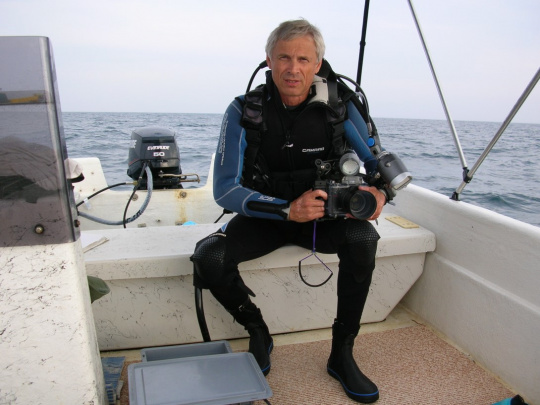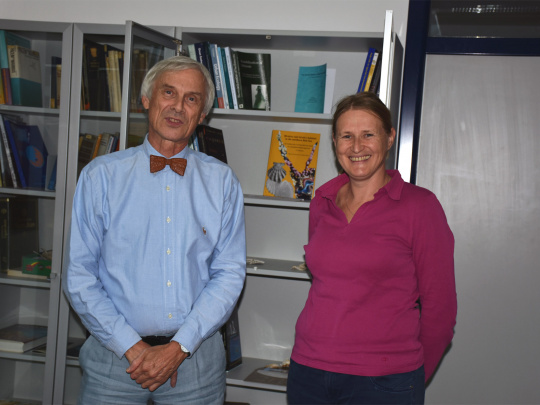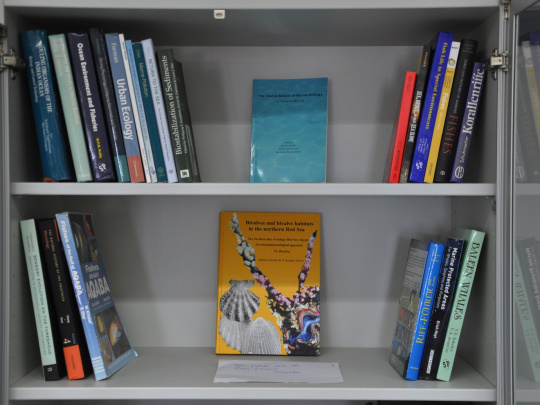Dr. Michael Stachowitsch´s scientific books donation to dept. of Biological library Ljubljana in Piran
The department of Biological Library at the Marine Biology Station (NIB-MBS) in Piran recently received a donated collection of twenty-five scientific books with topics on marine ecology and biology. The donor of these monographs is Dr. Michael Stachowitsch from the University of Vienna - among researchers at Marine Biology Station Piran well known as Mischka.
As a longtime visitor of MBS in Piran he explored in deep the marine habitats of the Gulf of Trieste as a scientific diver and SCUBA photographer as well. As the author of more than 50 scientific publications he collaborated also in the so called »meiofauna group« and published several scientific papers in co-authorship with researchers of MBP NIB Piran. More at http://homepage.univie.ac.at/michael.stachowitsch/.
As habilitated lecturer and mentor assisted many graduates and doctoral students at the University of Vienna in their knowledge progress in the field of marine ecology and marine pollution. He is the author of the book "The Invertebrates: an illustrated glossary" (Wiley, 1992) and active editor of section "Book reviews" in the scientific journal "Marine Ecology" (Wiley - Blackwell) which has been published on the initiative of the famous zoologist prof. dr. Rupert Riedl as continuation of Naples Zoological Institute´s – »Pubblicazioni della Stazione Zoologica di Napoli«- initially intitled Marine Ecology PSZN. Recently is engaged in activities dealing the management of endangered species where whale´s extinction problems emerge in the ocean worldwide.
Among accepted donation we can find interesting titles on marine ecology, fisheries, fish and invertebrate physiology and other related fields of marine research. Outstanding is Martin Zuschin´s and Graham Oliver´s monograph on bivalves and their habitats in the northern Red Sea, which is important as well for the study of so called »Lessepsian migrants« passing through Suez Canal to the Mediterranean sea nad is relevant also as indicators of »the global change«.
 NIB - MORSKA BIOLOŠKA POSTAJA PIRAN
NIB - MORSKA BIOLOŠKA POSTAJA PIRAN




